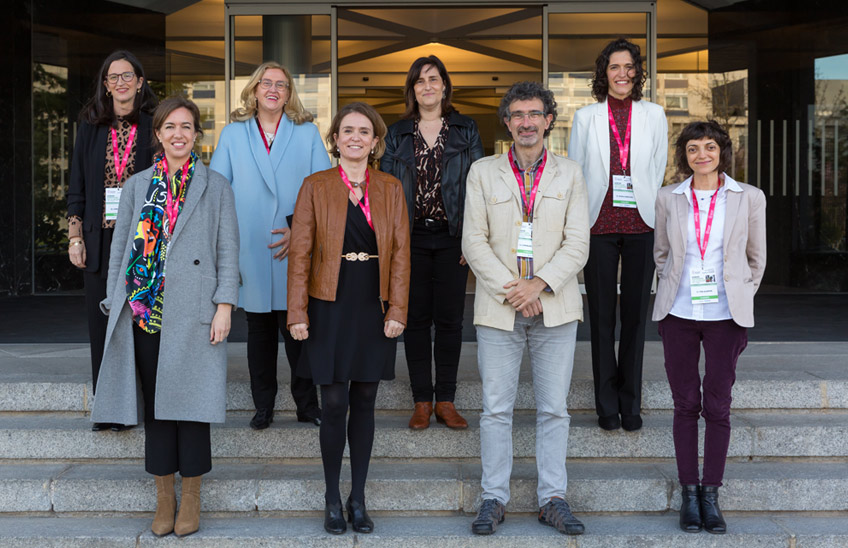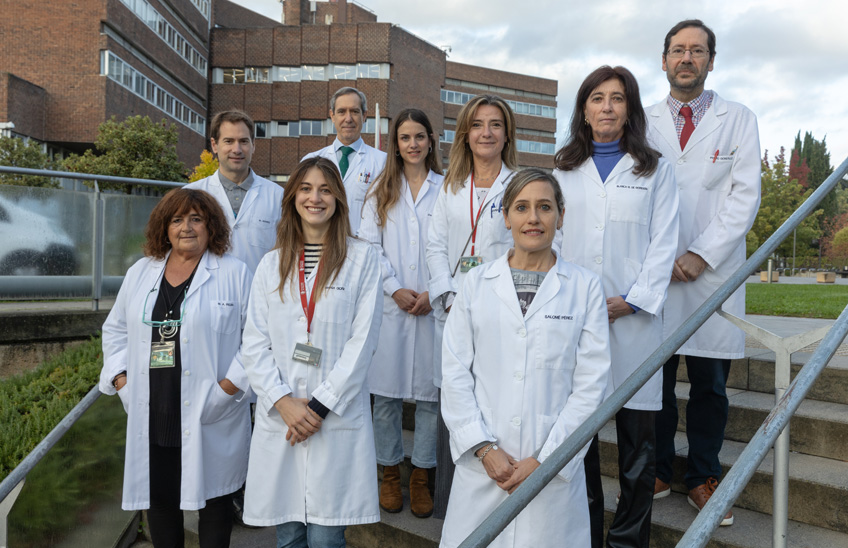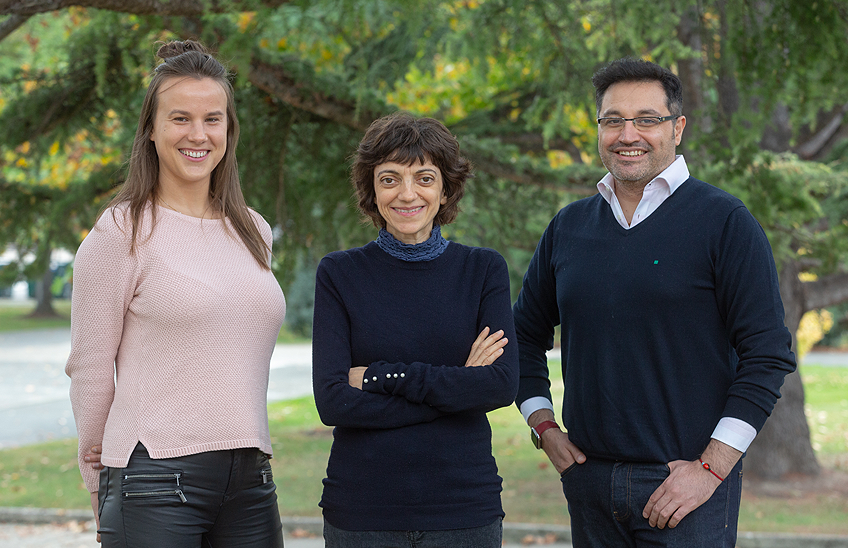"Gender stereotyping exists in diets."
Eva Almirón, from research center in Nutrition, participated in the conference of update in Nutrition of the University of Navarra.

FotoManuelCastells/Speakers of the workshop of update in Nutrition.
08 | 03 | 2022
"Gender stereotyping exists in diets; it involves strong psychosocial determinants that may even overcome biological and physiological determinants". So says Eva Almirón, researcher at research center in Nutrition at the University of Navarra, who spoke at conference of update in Nutrition. In her opinion, it is important to detect if there is an effect on our patient's eating behaviour of this subject: "These are behaviours that are often not clinically diagnosed but that a nutritionist should take into account".
During her lecture, under the degree scroll "Eating behaviour in women", she talked about food preferences and ration control in men and women, topics that are investigated at research center in Nutrition. There are physiological reasons for these differences, on which the nutritional requirements by gender are based, e.g. weight (as an indicator of the percentage of muscle mass), age and physical activity. Other differences are found in taste preferences. In this regard, he noted that "women in general perceive tastes more intensely, for example, bitter tastes. Also, women tend to prefer sugar and fat combinations, as opposed to protein and fat, which are preferred by men".
However, he also referred to behaviours, of psychosocial origin, which differ between men and women. For example, with regard to dietary restraint (control over what is eaten), disinhibition (eating without control) and susceptibility to hunger (eating more because of visual or sensory stimuli). "In a study with volunteers carried out at the University of Navarra, it was found that these behaviours were more evident in women and especially in women with obesity. On the other hand, the speed of ingestion and the quantity of what is loaded onto the fork is also different and tends to be greater in the case of men," she explained.
Microbiota, pregnancy and lactation
Dr. Eva Almirón participated in a roundtable together with the dietician-nutritionist María Marqués, and Dr. Fermín Milagro, also researcher of the research center in Nutrition of the University of Navarra. María Marqués spoke about "Keys to optimal nutrition in vegetarian and vegan lactating women". "These are women in a vulnerable period. Postpartum is a time of many changes and women doubt their ability to breastfeed and raise their children. Nutrition professionals need to be up-to-date and sensitive to this topic".
As she pointed out, vegetarian and vegan diets are on the rise: "1 in 10 women, including mothers and breastfeeding mothers, opt for this diet, and special care must be taken with their diets". However, she pointed out that for a successful breastfeeding of a vegetarian and vegan breastfeeding woman, food and supplementation is important, but "it is one more point of self-care for the woman, along with exercise and rest, and above all, building self-confidence".
Finally, Fermín Milagro spoke on "Microbiota and women's health". "There is increasing evidence that some pathologies are related to the microbiota, which is a causal factor in illness and also affects mood". Sex, she explained, is one of the most important factors, along with age, per diem expenses, stress and taking antibiotics, in the composition of the microbiota. "It has to do with our own physiological conditions (hormonal cycles, mood...)," he stressed.
In this regard, he referred to the importance of the gut microbiota in pregnancy and breastfeeding. "The composition of the mother's microbiota influences the development of the child's microbiota. It is believed that there is a transfer of microorganisms through the placenta during pregnancy, and also through the milk during breastfeeding," she said.



